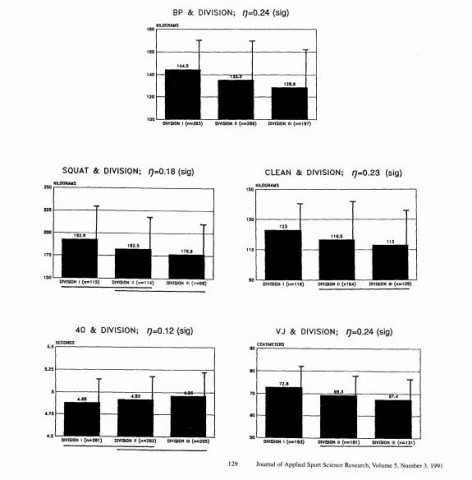I remember back in high school playing basketball. And we had a coach that tended to go with the older players as starters and bring in the underclassmen as subs. Looking back our coach probably had his reasons for his line-up. Older players would graduate soon and this would be their last year to play high school ball. Or maybe the older players had more experience and a longer relationship with the coach. And it's possible that the older players were simply bigger and stronger and got more playing time as a result. Seeing as how a year later, when I graduated high school, tipping the scales at a buck fifty, I wasn't going to be intimidating anyone on the court with my physical presence. But this didn't help my competitive nature and desire to be a starter and on the floor getting more playing time. Maybe if I were a little more on top of the literature back then I could have advocated for myself by hitting the weight room a little more frequently. Actually, who's kidding who? I never hit the weight room at all as a high school athlete. But I probably should have. Because the truth is that stronger athletes: play at a higher levelget more playing time But this isn't just an opinion but findings from a research study by Fry & Kramer (citation below) that looked at a number of performance tests of American college football players playing NCAA Division I, II and III. In total 19 NCAA programs participated in the study involving almost a thousand players (n=981). The authors of the study looked at five performance tests and compared this to level of play (i.e. Division I, II or III) and playing time (starter v. non-starter). The performance tests they looked at included:...
